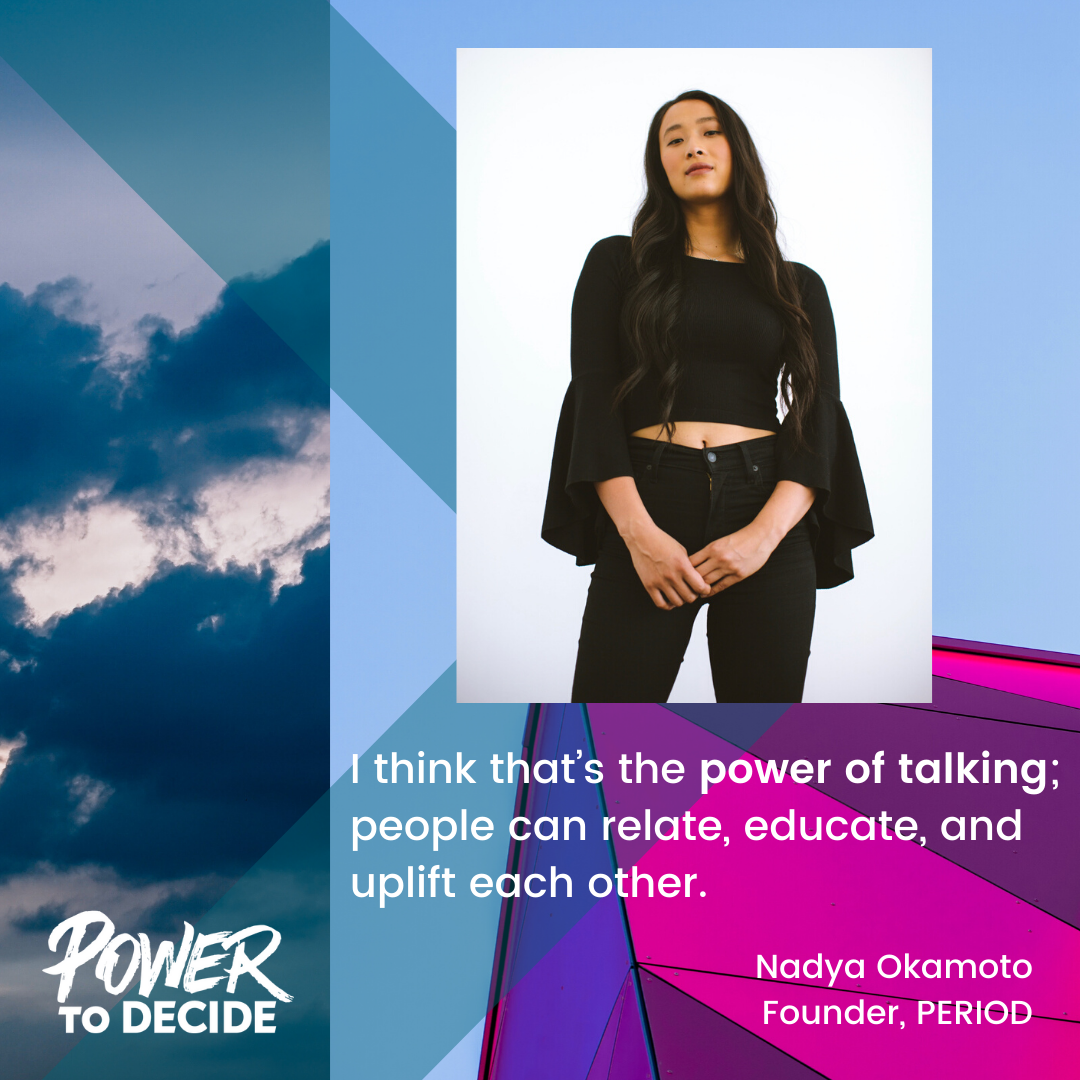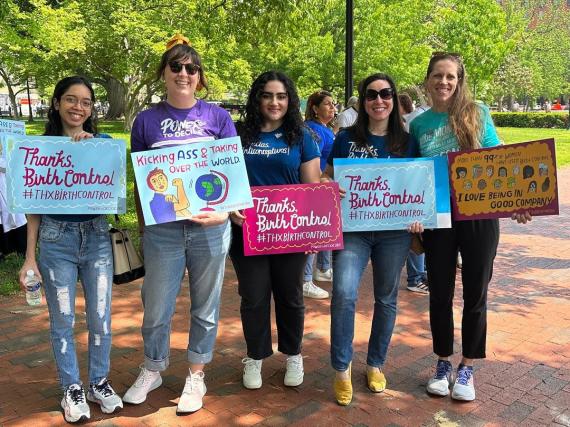4 Questions with Nadya Okamoto
Nadya Okamoto founded PERIOD at age 16 after speaking to people around her home of Portland, OR, about their experiences using things like toilet paper or socks while on their period. PERIOD is an international non-profit organization fighting to end period poverty and stigma. With more than 700 chapters on college campuses in all 50 states as well as in 40 other countries, PERIOD provides those in need with period products such as tampons and pads. The organization also advocates to end the so-called “tampon tax,” a sales tax levied on all period products because they are not deemed “medically necessary.”
At age 19, while attending Harvard University, she ran for city council in Cambridge, MA, becoming the youngest Asian American to run for public office. In honor of Asian American and Pacific Islander Heritage Month as well as Talking Is Power, we recently talked about her experiences founding what is now the largest youth-run NGO in women’s health and why she’s so passionate about ensuring everyone has the power to decide what their future looks like.
PERIOD helped to commission a study which found that nearly 85% of teens in the US who have a period have either missed class or know someone who’s missed class because of a lack of access to period products. Likewise, we know that more than 19 million women with low incomes live in contraceptive deserts, or counties without reasonable access to the full range of birth control methods. Why is access an issue that everyone should care about?
My passion for this work on ending period poverty stems from my fundamental belief that it is a human right to discover and reach one’s full potential, regardless of a natural need. And what could be more natural than the biological needs that our reproductive health poses for us — so access to period care, and contraceptives (and thus the right to family planning) is absolutely an issue that everyone should care about.
You’ve spoken before about how privilege colors our experiences and can make it difficult to recognize other people’s situations. How has having the power to decide your future impacted you? What advice can you give to champions who want to give the young people in their lives the power to decide as well?
I’m very fortunate that I’ve been able to turn my passion into my profession and I owe that, in part, to mentors I’ve had. My advice to others that want to empower young people would be to share opportunities with young people, uplift their voices, and offer mentorship if you’re able!
What advice do you have for other young people looking to take their activism beyond retweets and signing petitions?
They can join or start a PERIOD chapter at their school or in their community! We have over 700 registered chapters across the globe that strive to advance PERIOD’s mission of ending period poverty and period stigma, by creating action plans employing our three pillars of service, education, and advocacy. Chapters run educational workshops in their community to reshape the way people think, talk, and learn about periods. They also distribute menstrual products to people in need in their community, and work on changing policy to advance menstrual equity on both the local and the state level. All of the information on how to get started can be found at period.org! Other ways to work towards ending period stigma are to have open conversations about menstruation, educate yourself and others, and fight alongside PERIOD to change policy!
Why do you think that Talking Is Power?
When I was 16, I felt so alone in my experiences. It was through sharing my story, that I reclaimed my voice and my past for myself. Moreover, I’m inspired by the stories I hear from my community. I think that’s the power of talking; people can relate, educate, and uplift each other.



